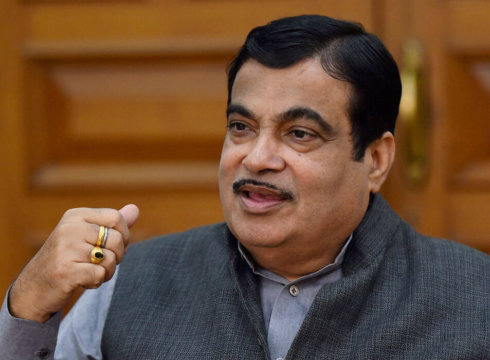SUMMARY
Government Decides To Drop The Idea Of An India EV Policy; Carmakers Get A Breather
Inc42 Daily Brief
Stay Ahead With Daily News & Analysis on India’s Tech & Startup Economy
The carmakers in India took a breather after the government announced that it has decided against formulating an electric vehicle or EV policy. This apparent U-turn made via a statement given by Nitin Gadkari, minister of road transport – GoI, is likely to create ripple shocks across sectors striving for clean fuel technology.
Speaking to the media during a press briefing, Nitin Gadkari said, “There is no need for any policy now.”
The briefing by the minister was accompanied by Niti Ayog CEO, Amitabh Kant, who seconded the statement of the Minister by saying, “What we need is just action plans.”
This development is in complete contrast to what Gadkari had said earlier regarding EV policies in India. The minister had said that he was waiting for approval from the Union Cabinet. He had also outlined the government’s ambitions to shift to electric vehicles by 2030.
Defending the government’s decision, Kant stated, “Everyday, new technology is coming into the market. Technology is always ahead of rules and regulations. And in India, it becomes very tough to change rules and regulations, so let there be just actions.”
Post the government’s announcement to strategise EV policy in India, several companies in the automobile sector had started developing their distinct strategies for EVs even as they also lobbied the government to drop the idea.
Mahesh Babu, Chief Executive of Mahindra Electric Mobility Ltd, one of the country’s biggest EV maker, said the industry needs continued support from the government.
“We have already stated that the existing FAME (incentive) scheme should continue for another two years and electric vehicles should continue to be taxed at the current level. If these things continue, then there should not be a problem,” said Babu.
To overcome some of the problems for electric vehicles, NITI Aayog, along with Colorado-based Rocky Mountain Institute, in their 2017 report on the future of shared, electric and connected mobility future in India, had suggested setting up “a manufacturer consortium for batteries, common components, and platforms to develop battery cell technologies and packs and to procure common components for Indian original equipment manufacturers”.
The report said that the adoption of electric and shared vehicles could help India save $60 Bn in diesel and petrol, along with cutting down as much as one gigaton of carbon emissions by 2030.
Interestingly, in the recently concluded Auto Expo 2018, apart from automotive giants like Mahindra and Mahindra, Toyota, Tata Motors and Maruti Suzuki, several smaller companies and startups also presented their electric mobility solutions.
This enthusiasm in the Indian automobile market for EVs came largely due to the government’s push in electric vehicles and other green mobility solutions. The Auto Expo 2018 saw 28 market-ready electric vehicles being showcased across different segments.
The electric vehicles (EV) market is expected to record double-digit growth rates with rise in sales volume annually in India till 2020, according to ASSOCHAM-EY joint study.
The study titled ‘Electric mobility in India: Leveraging collaboration and nascency’, further said that despite electric vehicles not being mainstream, stricter emission norms, reducing battery prices and increasing consumer awareness are driving EV adoption in India.
As per the study, at present, electric vehicle industry is at a nascent stage comprising 1% of the total vehicle sales and is dominated by two-wheelers (95%). The study also suggests that EVs will be a stepping stone in designing an intelligent transport infrastructure in India.
In the light of the government’s decision that has refrained from drafting proper policy to encourage the EV market in India, the infrastructural support which was to come from the government such as having charging points at the right locations and informing the public about the same which is essential to make India EV-ready seems a distant reality.
Therefore, the announcement by Nitin Gadkari to drop EV policy will not only affect the startups that are working on electric mobility solutions but will also affect the lucrativeness of India as a market for global EV companies.
Note: We at Inc42 take our ethics very seriously. More information about it can be found here.


